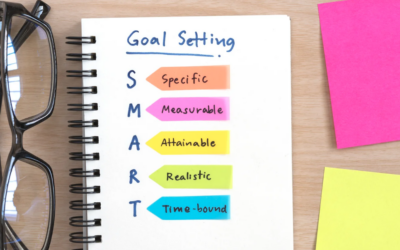No time to listen now? We'll send it to your inbox.
No time to listen now? We'll send it to your inbox.
or scroll down to get the highlights

So, you’ve embarked on your e-commerce journey. You’ve put in the hours, made the sacrifices, and maybe even taken a few risks. But…what if you’re ready to move on? What if you want to sell your e-commerce business and start a new adventure?
It’s a big decision, fraught with questions, risks, and uncertainties. You’re not alone; many e-commerce entrepreneurs face these dilemmas. And in this post we’re going to talk you through it with Ethan Alexander from Quietlight, a leading voice and authority in the emerging niche of selling and buying profitable online businesses. Ethan is a serial entrepreneur who has successfully built numerous multi-million dollar companies.
Read on and we’ll break down five key areas that can either make or break your e-commerce business when it comes to selling it
Inside A Buyer’s Mind
Almost every potential buyer’s goal for a business is to grow it. So if your business doesn’t have room for growth, it’s like a ship with a leaky hull. Fewer people want to hop on board, and that can drag down your business’s value.
But here’s the silver lining: different buyers are like superheroes with unique superpowers. Some are marketing wizards, some are operation gurus, and others are pros at specific sales channels like Amazon or Shopify. The secret sauce to attracting the right buyer for your e-commerce gem lies in highlighting what your business needs to thrive.
For example, if your marketing game is weak, there are buyers out there who can sprinkle magic dust on it. If your operations are a mess, someone with a knack for streamlining processes can work wonders. And if you’ve just scratched the surface with platforms like Amazon, buyers experienced in that arena can take your business to the next level. So, it’s all about finding that perfect match based on what your business needs. Regardless, there’s likely a hero out there waiting to team up with your business.
Turning Your Business into a Valuable Asset
So many people think there’s very little, or even no, value in their business. But let’s break this down in plain English. There are two main ingredients that cook up your business valuation stew: SDE (seller’s discretionary earnings) and the elusive multiple.
SDE: What’s in Your Wallet?
SDE is a measure of the earnings of a business and is the most common measure of cash flow used to value a small business. Imagine your Profit and Loss statement. You’ve got your income, your expenses (like cost of goods sold), your operational costs, and voila…your net profit. Then there’s another section—addbacks. These are operational expenses (like owner’s salary or health insurance–not technically necessary for the business) that we claim for tax purposes because we can. They’re like little bonuses that won’t dent your valuation. So your SDE is the total of your pre-tax net profit, plus your addbacks.
The Mysterious Multiple
Now, let’s talk about the ‘multiple’. Think of it as the proprietary spice blend for your business stew. It’s everything else that makes your business unique. Your business’s age, industry, brand strength, size, and even your personality all come together to give your business a multiple (of your SDE.) Most e-commerce stores fall between two and four on the multiple scale.
Making it Tangible
Let’s put this into perspective. If your Seller’s Discretionary Earnings (SDE) for the last 12 months are $200,000, and you’re looking at a multiple of three, that puts your valuation at around $600,000. Simple, right?
The Inventory Conundrum
Now here’s the deal with inventory: most buyers want you to have just the right amount–the ideal is around three to four months’ worth of inventory per SKU–valued at your landed cost of goods sold.
So, if you’ve got $50,000 worth of inventory, add it to your valuation. In our example, that’s $650,000 in total deal value.
Business Value = (SDE * Multiple) + Inventory
See, it’s not rocket science! Your e-commerce business is a valuable asset. Now that you know the recipe, you can start cooking up a fantastic valuation.
Now onto the 5 key areas that can make or break the sale of your business.
1. Financials: Don’t Let Your Books Be a Hot Mess!
First up, financials. I know, numbers can make your head spin, but they’re the backbone of your business’s value. If your books are a hot mess, it’s time to clean up your act. Specifically, make sure your COGS (that’s Cost of Goods Sold) is done on an accrual basis, not a cash basis.
Here’s the deal: Accrual basis means you record your COGS when the product is sold, not when you buy it. Why does this matter? Because it gives you a true picture of your profitability. Cash basis may keep your cash flow in check, but for valuation purposes, accrual is the way to go. So, if your finances need a makeover, start with this.
2. Risk: Your Business’s Safety Net
Let’s talk about risk. We’re not talking about your skills; we’re talking about your business’s safety net. Buyers want to invest in a business that’s not a ticking time bomb. Ask yourself the question, “what do I really depend on for this business?”Consider things like your sales channels, your marketing channels, vendor relationships, employees. If any one of those went away, would your business still be ok? If your Etsy shop, or your ads account suddenly got shut down, would that take you out? Could you survive if your main supplier went away? If you’re on the knife’s edge, it’s fixable if you work on it now. Make sure you’re diversifying your income streams and minimizing risks. Buyers love a business with a safety net.
3. Growth: Show Them the Money…Potential
Growth is your golden ticket. But not just any growth, profitable growth. We aren’t talking tech companies that grow and grow and grow at all costs, that’s a different business model. Buyers aren’t just buying your business for what it is today; they want to know what it can become. Show them the money…potential!Highlight your growth trends (ie. the past 12 months compared to the prior 12, as well as each month vs. the prior year’s month,) marketing strategies, and expansion plans. The best time to sell your business is when your growth rate is steady. Consistent, profitable growth beats big, impressive numbers.
4. Transferability: Can Your Business Run Without You?
Buyers want to know if your business can run without you. Are you the heart and soul of your operation, or can it thrive with someone new at the helm? Are your vendors loyal to your company, or just to you?To boost your business’s transferability, document your processes, create standard operating procedures (SOPs), and delegate tasks. Make your business a well-oiled machine that doesn’t rely solely on you. Buyers love a business they can slip into like a well-fitted glove.
But what if you’re the face of your brand?
So many store owners in our community are truly the heart, soul, and FACE of their brand, and it’s both a blessing and a curse. If this is you, you’ve likely built a thriving, profitable e-commerce business, and everyone knows you as the face behind the brand. People love what you do because they love you, but will a potential buyer be able to replicate your results without you in the picture?
Let’s use an example–Dave Ramsey. He’s been the heart and soul of his financial advice brand for ages. But recently, Dave has started introducing new faces and voices to his brand. He expanded his team, and now you see others hosting podcasts and taking on more prominent roles. It’s like he’s gradually passing the baton.
Now, why would he do that? It could be because he’s looking to retire, take more time off, or even sell his business. And if it’s the latter, he’s making the right moves. See, when your business is synonymous with you, it can be hard to sell it unless you transition out of the spotlight.
Make no mistake, building your brand around yourself is a smart move. It helps you leverage your audience and supercharges your growth. But once you reach a certain point, it’s time to rethink your strategy.
So here’s the plan: Find a way to gracefully shift the spotlight from you to your brand. Introduce new faces, promote your team members, or focus on the brand itself. This way, your business remains sellable, and you’re not tied to it post-sale.
Start the transition process a few years before you even think about selling. Shine the light on others within your organization, experiment with your branding strategy, and don’t rush the process. It’s a marathon, not a sprint.
5. Documentation: Don’t Be a Data Hoarder
Last but not least, documentation. Don’t be a data hoarder. Buyers want to see your business’s history and performance. Keep records of everything – financials, contracts, supplier agreements, customer data (while staying GDPR-compliant, of course), and anything else that matters.So, what should be in your documentation treasure chest?
First off, we’re talking about the intellectual property (IP) stuff – patents, trademarks, etc.. For instance, if you’re in the Amazon FBA game, having a trademark for brand registry is practically a must-do nowadays. And even for Shopify-based brands, having a trademark can add some extra sparkle to your shine. It won’t magically inflate your business’s value by thousands, it’s more like a security blanket, making your business more trustworthy and resilient.
But the real MVP of documentation is your Standard Operating Procedures (SOPs). Think of them as your business’s how-to guide. Whether you’re a wordsmith or prefer talking things through, recording your processes is essential.
The key is to make knowledge transfer a breeze for the buyer. Whether it’s your expertise or your team’s, having it documented, either in writing or through video, ensures that the wisdom and know-how your business runs on can be seamlessly handed over to a new owner.
That way, even if someone else takes the driver’s seat, your business can keep on truckin’ without missing a beat.
Why Hiding is Not an Option
Ok so you’ve decided to sell your e-commerce business, and offers are starting to roll in. At this stage, everything you’ve presented to buyers is considered true and accurate. But, here’s the thing: once you accept an offer and enter due diligence, buyers will be like Sherlock Holmes, digging into every nook and cranny of your business to verify that everything checks out.
If they feel misled or discover something fishy, the deal could go south faster than you can say “ecommerce.” So, hiding stuff is not a winning strategy.
Now, sure, honest mistakes can happen. Maybe you misunderstood a question or misstated something. That’s human. But once trust is lost, it’s tough to rebuild.
Selling a business isn’t just about the numbers; it’s also a people business, especially as you get closer to closing the deal. It’s not all about spreadsheets and financials; there’s a lot of heart involved.
As you approach the finish line, you’ll find that it’s more subjective, more about emotions and relationships than you might expect. That’s why confidence and mindset play a massive role throughout the process.
Timing Is Everything
You might be wondering how long it takes to sell an e-commerce business. While the industry average is around 90 days from listing to sale, it can vary widely.
Most businesses aren’t ready for sale right after the initial conversation. It often takes six to 18 months to prepare. And you know what? That’s perfectly normal.
The key is to understand where you are and where you want to go. Your timeline depends on your goals and how quickly you can get your ducks in a row. It’s all about having a clear roadmap.
So there you have it, five key areas to focus on to make your e-commerce business a hot commodity. Clean up those financials, minimize risk, showcase growth potential, ensure transferability, and be a documentation guru. With these in your toolkit, your business will be more valuable than ever.
Remember, even if you’re not thinking of selling right now, these improvements will make your business stronger, more profitable, and ready for whatever the future holds. Every e-commerce business is unique, like a puzzle waiting to be solved. But with the right mindset, preparation, and guidance, you can make selling your business a reality and embark on your next exciting adventure.
Connect with Ethan
If you’re feeling overwhelmed or have burning questions about selling your e-commerce business, don’t hesitate to reach out. Ethan is here to help you navigate this journey. Email him at [email protected], and he would be more than happy to chat.
Related Links:
How to calculate SDE and identify add backs: https://quietlight.com/3-types-of-addbacks/
Overview of the entire selling process: https://quietlight.com/guide/process/
Testimonials from businesses Ethan has worked with: https://quietlight.com/advisors/ethan-alexander/#testimonials
Want to Sell Your Business? Here’s Where To Start: https://thesocialsalesgirls.com/want-to-sell-your-business-heres-where-to-start-episode-142/
How To Sell Your Business and Reach Big, Scary Goals: https://thesocialsalesgirls.com/how-to-sell-your-business-and-reach-big-scary-goals-episode-8/
Get my new course, Conversion School for Free!
Learn our step by step process to grow your sales, without spending a
fortune on risky ad strategies, or discounting your products
The strategy you’ll learn in Conversion School works for Ecommerce stores at all stages.
You'll use your store’s data, so if you’re starting out, you’ll learn how to get consistent sales.
Established Store Owners will learn how to achieve significant sales growth every month.
A Little Trick To Get The Results You Really Want, Episode 225
No time to listen now? We'll send it to your inbox. No time to listen now? We'll send it to your inbox. or scroll down to get the highlightsHow to Set the Right Goals and Achieve Clarity in Your Business Recently,...
From 0 to multiple 6 figures. The story of a creative success, Episode 224
No time to listen now? We'll send it to your inbox. No time to listen now? We'll send it to your inbox. or scroll down to get the highlightsI get this question all the time: can artists and creatives really earn an...
How Erica supersized her profit and wiped out her stress, Episode 223
No time to listen now? We'll send it to your inbox. No time to listen now? We'll send it to your inbox. or scroll down to get the highlightsHow Erica Campbell Turned Her Faith-Based Gift Shop Into A Profitable Business...



